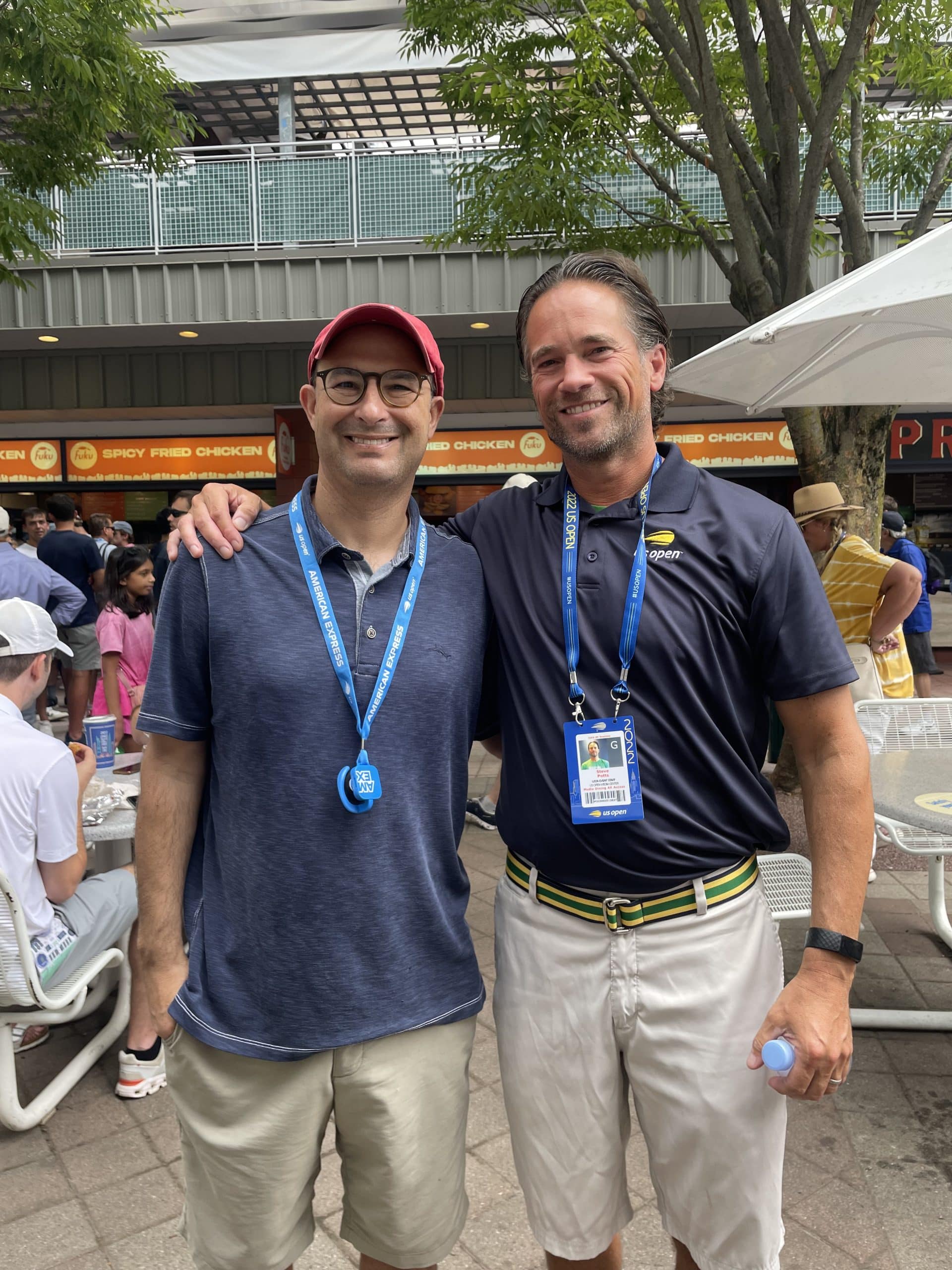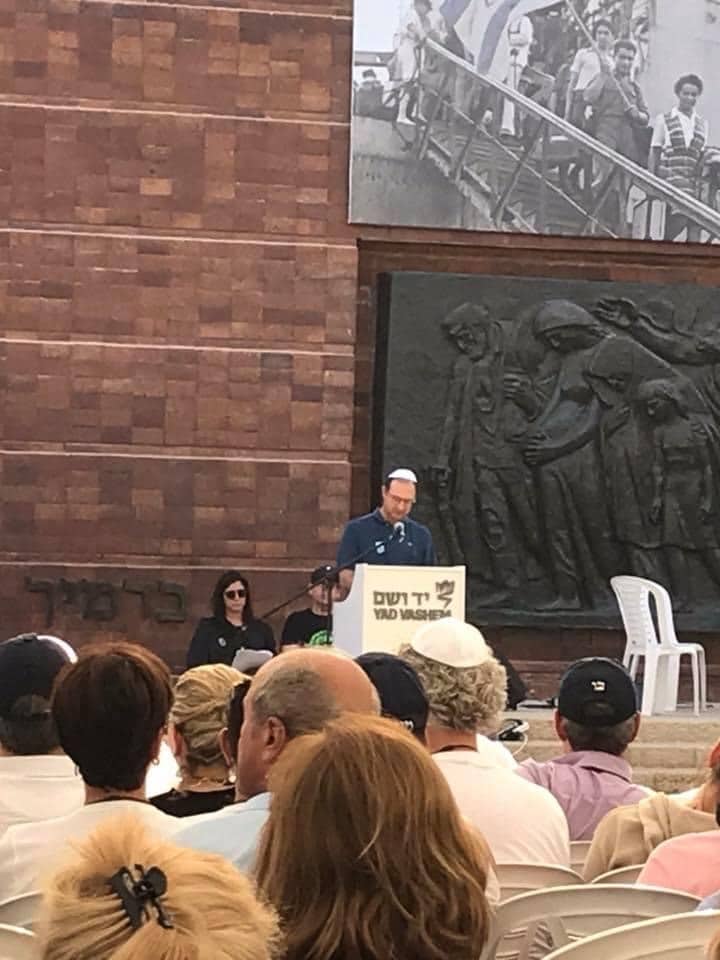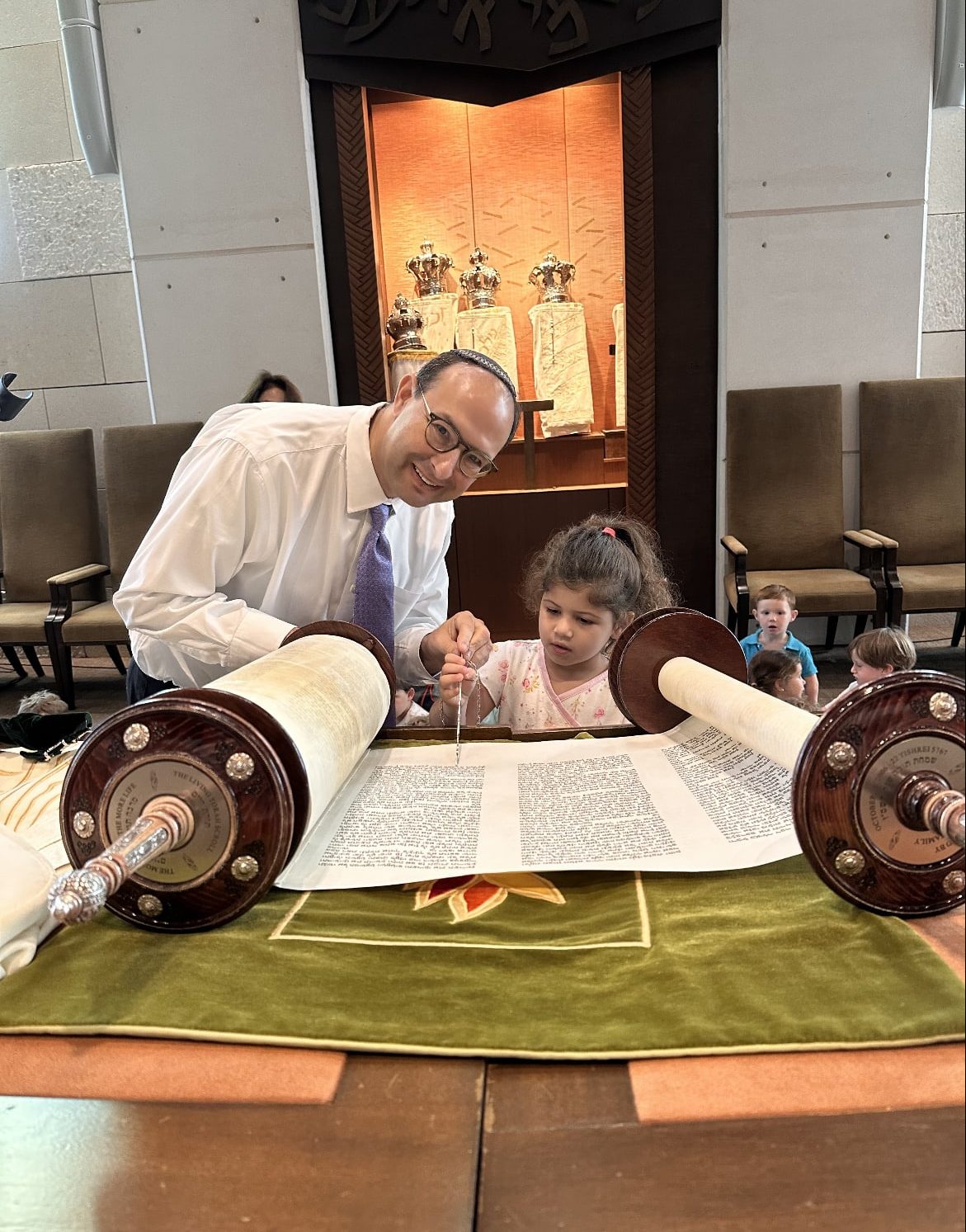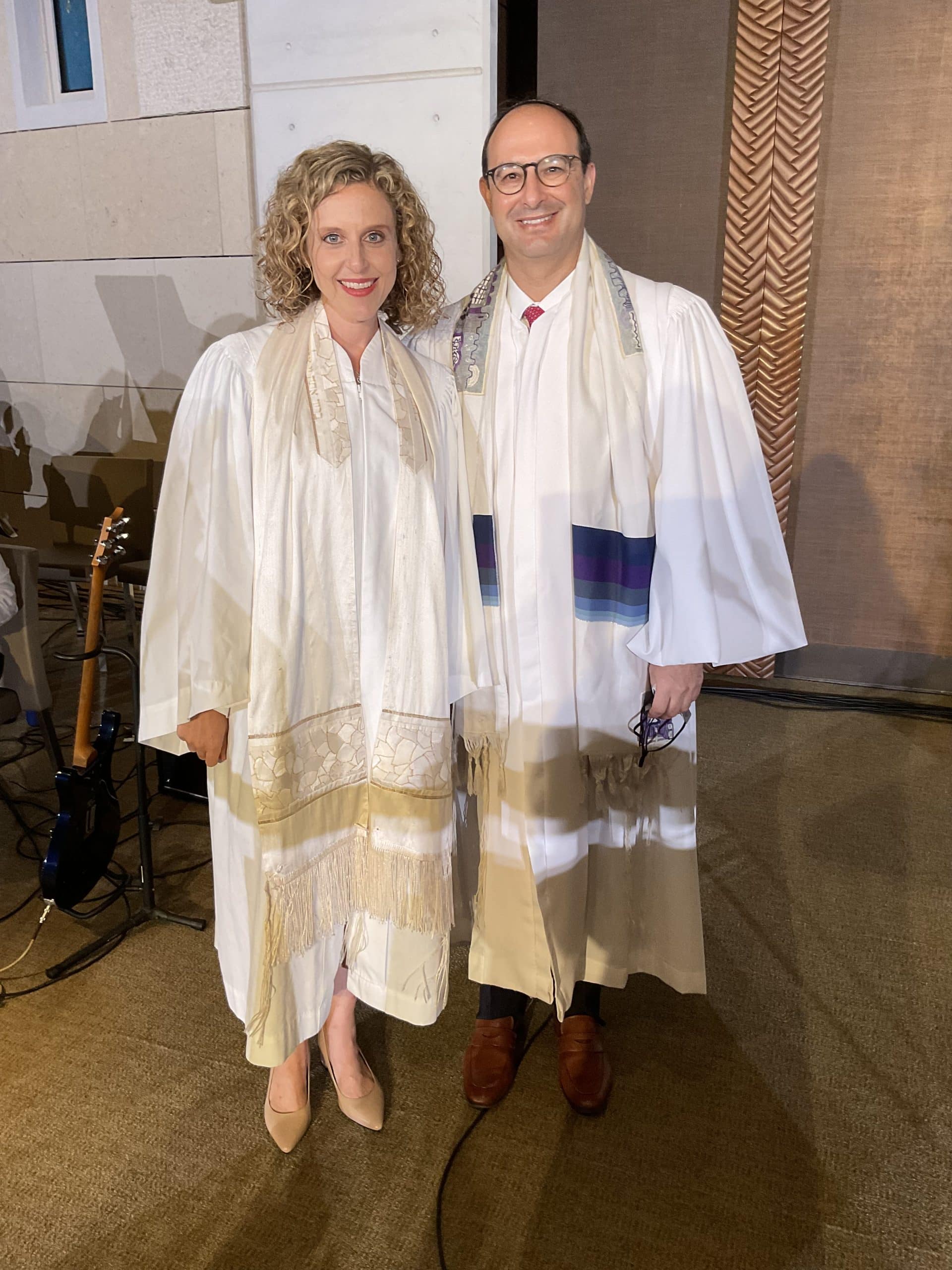June 1st, 2023
Celebrating Jewish Heritage Month: Rabbi Jeremy Barras
The Month of May is Jewish Heritage Month, to celebrate this, USTA Florida had the honor of sitting down with Jeremy Barras, a former college tennis players and current rabbi at Temple Beth Am, in South Florida.
Jeremy first started playing tennis when he was just five years old and made it his focus when he reached the end of middle school and start of high school in Pennsylvania. “I played USTA youth tournaments, I played in the Maccabee games a couple of times, and then I really wanted to play in college,” he said.
He went on to play at a Division III school, Connecticut College, in the New England area. He worked his way up from being the No. 5 line all the way to No. 1 by his senior year. He played all around the world, in tons of tournaments, and many formidable opponents, but when college was over, tennis took a back seat.

Tennis has been a big part of Jeremy’s (Left) life.
“I pretty much quit, I was burnt out. My knees were killing me, I had a lot of tendonitis in my shoulders, and I was just beat down,” he said. Now, he finds himself playing about once a month, that’s because he puts a lot of focus on his job, being a rabbi.
Jeremy didn’t know he wanted to be involved with his Jewish Heritage when he was young. “I’m very proud of being Jewish, but when I was in college, it didn’t even enter my mind that I would become a rabbi.” He spent a semester in Israel at Tel Aviv University and that is where he started to realize more what he wanted to do.
He and his friends were downtown and saw a rally going on, so they joined in because it looked like everyone was having fun. They listened to some speeches and then Prime Minister Yitzhak Rabin delivered a speech. He was later assassinated that same night.

Jeremy spent time in Israel studying to become a Rabbi.
“When that happened, I started thinking about life a lot differently. I started thinking about him and how much he’d done for other people, and I just had this feeling of insignificance and I thought I need to find something to do in life that that will be more than just about me, that people will care about.”
Jeremy’s grandfather, who passed away when he was eight, was a rabbi and he thought about how people remembered him during his life.
“At the time I didn’t even know what it was or what a rabbi did necessarily, but I thought that would be something that would be about not just me, but other people and living a life greater than myself,” he said. “So I looked into it and pretty much decided this is what I’m going to do.”
After playing some more tennis in the United States, he returned to Israel for rabbinic school. Jeremy spent his first year overseas and then came to Cincinnati to study for four more years, where he would become a Reformed Rabbi.
He has been working as a rabbi now for 21 years, he completed five years as an assistant in North Carolina, and is in his eighth year at Temple Beth Am and mentors many people.

He now is a rabbi at Temple Beth Am in Miami, Florida.
Jeremy has learned to become a great leader through tennis, especially after his close friends and teammates didn’t vote him as captain of the team in college. “One player said that I yelled at them, not in a mean way but when they goofed around and that player said that wasn’t leadership,” he said. “That was the best thing to ever happen to me, because I really learned how to respect, talk to, and treat people.”
When asked about how he guides his peers with so much hate and antisemitism happening around the world, Jeremy reflects on how diverse America is and the importance of getting more people to care about problems in society. “The greatness of America is its diversity and if we’re not able to celebrate our diversity, then we miss out on what makes America so special.”
“There’s about one in five people who you know are racist or homophobic or antisemitic or all of the above,” he said. “Then, there are about 20% of this country who are just fabulous people who love everyone who will do anything for anyone and treat everybody fairly and with respect. But, then there’s 60% in the middle who I think really don’t care one way or the other.”

Jeremy wants to make the 60% of people to start caring about social problems in the world.
His goal is to get those 60% of people who don’t care to take a stand and start caring about the rights of Jewish people and others in the world. “We need to get all the people who don’t care, to care, and understand us, join the forces of good and not the forces of evil.”
While Jeremy continues to make a positive impact for the future of Jewish people living around the world, he credits tennis for helping shape him into the person he is today. “Tennis is the ultimate test of morality because you’re responsible for your own behavior,” he said. “It’s no one else’s fault if you win or lose, you can do whatever you want out there. The coach can’t take you out of the game, you can cheat if you want, everything is on your own shoulders, your own behavior, your own performance and how you call the match.”
He believes that the game teaches core values, and it can be reflected on in the Jewish religion “Tennis teaches sportsmanship and in a lot of ways it embodies Jewish values in the way that you play the game,” Jeremy said. “In Judaism, we believe that every person has their own personal relationship with God and in tennis, everyone plays their own style.”


